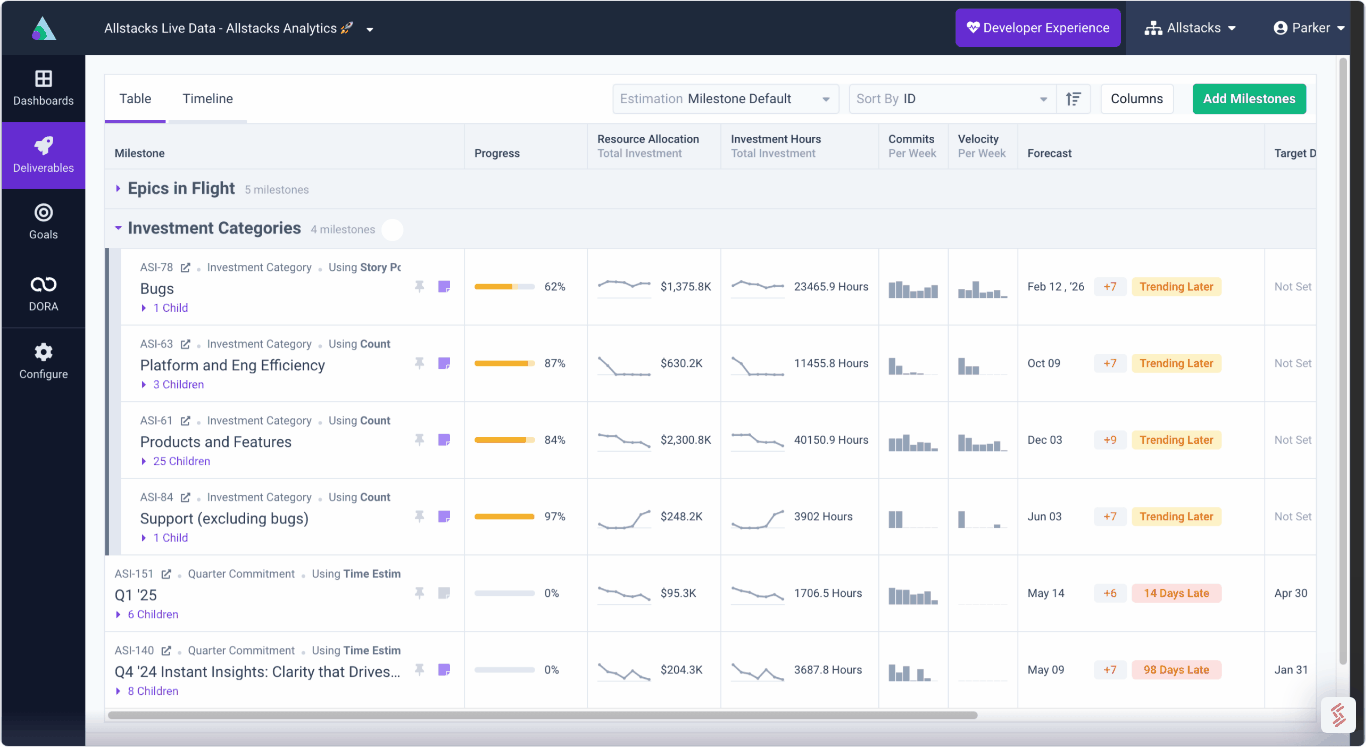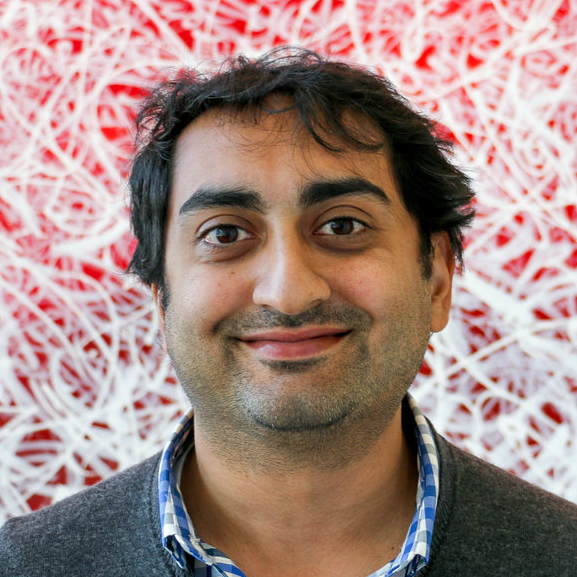.png)
Software Engineering Intelligence
-
Intelligence Engine
On-demand exhaustive AI-analysis
-
Engineering Investment
Complete visibility into time & dollars spent
-
360º Insights
Create meaningful reports and dashboards
-
Project Forecasting
Track and forecast all deliverables
DevEx
-
Developer Surveys
Create and share developer surveys
Software Capitalization
-
R&D Capitalization Reporting
Align and track development costs
Plato Elevate Recap
Here from our co-founder Hersh on the key themes discussed at the Plato Elevate Summit, effective alignment to business goals, productivity, team health, and burnout in engineering leadership.
One of the reasons I co-founded Allstacks was that, as an up-and-coming engineer, there was a significant lack of data and metrics-driven decision-making along with a major gap in mentorship, particularly in guiding engineers like myself on what they SHOULD be measuring. It felt like growth was trial by fire and advancement was happenstance. I was lucky in many ways to find mentors, most outside of engineering, who helped me develop skills that I could then transfer to engineering. Ultimately we founded Allstacks and set out to solve the data problem and to leverage that data to help coach our customers in their careers as well. Our greatest successes are ones linked to seeing customers of Allstacks develop their careers aided by the data we bring to the table.
So to partner with Plato on their Summit was a realization of a dream we’ve been building for the past 6 years.
As we came into the conference I spent some time thinking about the results of our 2024 engineering survey (a survey of over 200 Engineering Leaders about their perspective of productivity) and how the results would stack up against conversations IRL. Quickly, we found a strong alignment between what we had heard earlier in the year and what was top of mind. Most leaders we spoke with at Plato had an orientation around connecting to business goals, setting realistic expectations, and doing more with less. In fact, many attendees had an OKR around developing a formal metrics and productivity structure this year which maps to the fact that a quarter of our survey respondents previously had no formal process in place.
Over the course of the conference we spent time soliciting ideas for a “Dream Dashboard” for Engineering Leadership and from those conversations emerged several key themes. The top three themes we found are highlighted below but it’s clear there is a lot on these leaders’ minds.

You might notice in the image of the whiteboard that several of the metrics align to business goals rather than engineering output (see our other deep-dive post about this exercise). Engineering leaders were increasingly calling out the need to ensure that their work aligned to the core business goals, balance sheet metrics, and didn’t stop shy of showing their alignment to value.
It was not only critically important for engineering leadership to demonstrate how they were impacting the business but also to demonstrate that impact back to their individual contributors as well.
“Doing more with less”
As the economy has been uncertain over the last few years, a common theme amongst attendees was a simple “We have to do more with less”. Productivity and efficiency were top of mind across the board and formalizing these practices were a key goal across all of their attendees. More headcount isn’t coming so how can we get the most out of what we have?
Key amongst that is maintaining focus, “Are we contributing to the core goals of the business or working around the edges?”.
Team Health and BurnoutThe final theme centered on a deep and personal concern for the health of their team. With broad industry layoffs, the focus on productivity, and the inevitable need for continued outcomes without adding more resources, there is major risk for burnout. Our own survey found that 68% of teams felt over a quarter of their teams were already burnt out.
With that, a renewed focus on developer experience to ensure that not only are teams as productive as possible but we can retain our teams as long as possible. Interestingly, most companies only measure burnout based on retention, truly a lagging indicator, so this move to active management of developer experience is welcome.
All in, this was a wonderful experience for the Allstacks team, years in the making. We loved the opportunity to be a part of the Plato community and complete the circle of data and effective leadership, after all, while data helps us start conversations, our leadership makes the data salient.
Learn more about engineering productivity and best practices, Allstacks, and our products and research here:
- Follow Allstacks on LinkedIn for what engineers like yourself care about when it comes to productivity
- Check out our webinar on the results & takeaways from our engineering productivity survey
- Chat with Allstacks about Engineering Best Practices, request a trial, or poke around the platform with our interactive demo.


